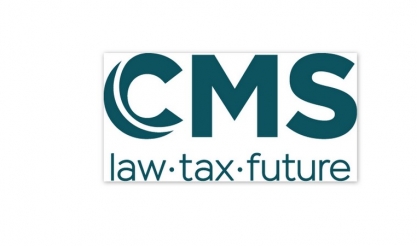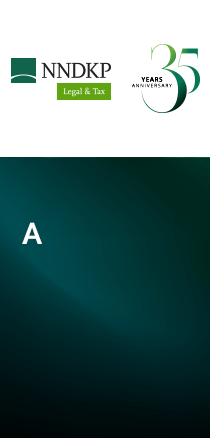
CMS România | Romanian court rules pre-existing conditions of patients do not excuse provider liability for nosocomial infections
15 Februarie 2023 CMS România
For more information on this decision and healthcare liability in Romania, contact your CMS client partner or local CMS experts: Horia Draghici and Andrei Cristescu.

|
The High Court of Cassation and Justice of Romania ruled that healthcare establishments may not avoid liability for nosocomial infections that a patient acquires during hospitalisation, irrespective of the individual's pre-existing health condition. The only chance for a healthcare provider to avoid liability is to provide evidence that the patient already carried the pathogen before admission to the establishment.
The case
An individual identified as "Mr. B" was hospitalised in Timisoara for heart disease. During hospitalisation, he died from a nosocomial infection. His wife sued the hospital and claimed damages, arguing that the hospital is liable for the infection. The first court and the appeal court dismissed the claim, but the High Court of Cassation and Justice (i.e. Romania’s Supreme court) decided that the hospital is liable for the death of the patient caused by a nosocomial infection.
The case
An individual identified as "Mr. B" was hospitalised in Timisoara for heart disease. During hospitalisation, he died from a nosocomial infection. His wife sued the hospital and claimed damages, arguing that the hospital is liable for the infection. The first court and the appeal court dismissed the claim, but the High Court of Cassation and Justice (i.e. Romania’s Supreme court) decided that the hospital is liable for the death of the patient caused by a nosocomial infection.
Law no. 95/2006 regarding the reform of the healthcare system, Article 655 (1) a)
The decision was based on Art. 655 para. (1) letter a) of Romania's Law no. 95/2006 that provides: “Public or private healthcare establishments, as providers of healthcare services, shall be civilly liable, according to general law provisions, for damages caused during the activity of prevention, diagnosis or treatment, if they are the consequence: (a) nosocomial infections, unless an external cause beyond the control of the healthcare establishment is proved. (…)”
Hence, in order to trigger liability on the basis of the above legal provision, the claimant must only prove that the injury was caused by a nosocomial infection during the activity of prevention, diagnosis or treatment, while the only way in which the defendant can be exonerated from liability is to prove an external cause beyond the establishment's control.
Proof of negligence is not required.
The law does not establish the meaning of the "external cause beyond the control of the healthcare establishment", so it is subject to interpretation of Romanian courts.
Application in this case
The first court and the appeal court considered that by weakening the immune system the pre-existing health condition favoured the nosocomial infection and that this represented an external cause that could not be controlled by the hospital, as provided in Article 655 (1) a). This decision was rendered even though the evidence indicated that the death of Mr. B was caused by the nosocomial infection acquired in the hospital.
In the second appeal, the High Court of Cassation and Justice invalidated the decisions of the lower courts and sent the case for retrial. The High Court of Cassation and Justice concluded that the state of immunological vulnerability, caused by previous diseases, is irrelevant and does not constitute an external cause in the meaning of Article 655 (1) a) of Law no. 95/2006.
The reasoning was that this legal provision establishes an objective tort liability of healthcare establishments for damages caused to patients by nosocomial infections as a consequence of the providers' failure to comply with their legal safety obligations. The risk of nosocomial infections belongs to the healthcare establishment and cannot be transferred to the patient.
To avoid the introduction of pathogens within the healthcare establishment, patients are examined at the time of admission to the health establishment. After that moment, the medical conditions of patients come under the power and control of the healthcare establishment, which has an obligation to guarantee the prevention of nosocomial infections. When the damages are caused by a nosocomial infection (i.e. the determinant cause), the liability of the healthcare establishment is triggered. In this case, the contributing causes such as a weak immune system is of no relevance.
The High Court of Cassation and Justice also established that the only situation where the previous diseases can be relevant is when, at admission to the healthcare establishment, the patient is the carrier of the pathogen, which the healthcare establishment could not discover in the framework of its medical investigations. As this exception was not applicable, the High Court decided to admit the final appeal.
Comment
The case underlines that Article 655 (1) a) of Law no. 95/2006 provides an objective tort liability, as it is not necessary to prove negligence. Furthermore, it provides a benchmark for determining whether a particular circumstance constitutes an "external cause beyond the control of the healthcare establishment". Hence, it shows that if the healthcare establishment is to avoid liability, it needs to provide evidence that the source of the patient's nosocomial infection occurred outside of the healthcare establishment. In this case, the infection must be discovered before the patient's admission into the healthcare establishment.
In particular, the decision shows that the pre-existing health condition does not exonerate the establishment from liability. (As a rule, all patients admitted to healthcare establishments have pre-existing health conditions). Therefore, the standard of proof for healthcare establishments to avoid liability for nosocomial infections is high and healthcare establishments should put in place procedures for early screening of newly admitted patients to discover pathogen agents.
Additionally, the reasoning of the High Court of Cassation and Justice confirmed the high level of legal protection of patients that acquire nosocomial infection during admission to healthcare establishments.
For more information on this decision and healthcare liability in Romania, contact your CMS client partner or local CMS experts: Horia Draghici and Andrei Cristescu.
This article has been co-authored by Diana Ceausu, Lawyer.
| Publicitate pe BizLawyer? |
  |
| Articol 629 / 4469 | Următorul articol |
| Publicitate pe BizLawyer? |
 |

BREAKING NEWS
ESENTIAL
LegiTeam: Atorney at Law | Dispute Resolution for commercial ̸ administrative litigation and arbitration | Reff & Associates
LegiTeam: Lawyer in Real Estate | Reff & Associates
Women Lawyers | De vorbă cu Ioana Cazacu, Managing Associate la Popovici Nițu Stoica & Asociații despre avocatură la genul feminin și alegerile făcute în carieră: ”PNSA este un loc excelent pentru a te dezvolta ca avocat. Varietatea și anvergura proiectelor asistate juridic, interacțiunea directă, permanentă cu clienții și soliditatea echipei sunt doar câteva dintre argumentele în sprijinul acestei concluzii”
Women Lawyers | Doamnele au roluri principale și instrumentează proiecte majore la Mușat & Asociații, firmă care a format generații de avocați de excepție. Monia Dobrescu, Partener: ”Perseverente și cu o inteligență emoțională crescută, femeile au un impact semnificativ și contribuie la îmbunătățirea sistemului juridic. Tot mai multe doamne au ajuns în poziții de management și există deja demonstrația abilităților lor de conducere”
CMS România își mărește echipa în România prin cooptarea strategică a unui senior counsel și lansează practica de Apărare | Horea Popescu (Managing Partner): „Cristian Băcanu se remarcă printr-o combinație unică de experiență juridică, leadership în sectorul public și viziune internațională, ceea ce îl recomandă ca un membru valoros al echipei noastre”
LegiTeam: POPESCU & ASOCIAȚII recrutează avocați stagiari (București)
Schoenherr a asistat IGT Services and Technologies SRL în achiziția diviziei de Service Delivery a Connections Consult. Mădălina Neagu (Partener) a coordonat echipa
LegiTeam: Lawyer - Corporate M&A | Reff & Associates
The Legal 500 EMEA, ediția 2025 | Cele mai bune firme de avocatură din România, în 15 arii de practică. ȚZA se menține în fruntea ierarhiei, NNDKP și Filip & Company sunt pe podium, iar PNSA, Schoenherr, RTPR, CMS și ZRVP sunt în prima bandă în mai multe arii de practică. Foarte multe nume noi și anul acesta printre avocații considerați ‘Leading individuals’, ‘Next Generation Partners’ și ‘Rising Stars’
LegiTeam: Zamfirescu Racoţi Vasile & Partners recrutează avocat definitiv dreptul muncii | Consultanță
VIDEO | Pastila de insolvență – Înscrierea creanțelor în tabel (Powered by ZRVP)
Women Lawyers | De vorbă cu Ioana Șampek, avocat ce a împlinit 20 de ani de când face parte din colectivitatea PNSA, în care a evoluat până la rolul de Partener și a construit împreună cu colegii o echipă omogenă, bazată pe respect și sinceritate: “Suntem de ani buni una dintre cele mai puternice echipe de specialiști de pe piața locală de avocatură. Prețuim inteligența, forța loialității, onestitatea, tenacitatea și dorim ca întotdeauna să fim ‘more than just expertise’ ”
Citeste pe SeeNews Digital Network
-
BizBanker
-
BizLeader
- in curand...
-
SeeNews
in curand...











 RSS
RSS














































